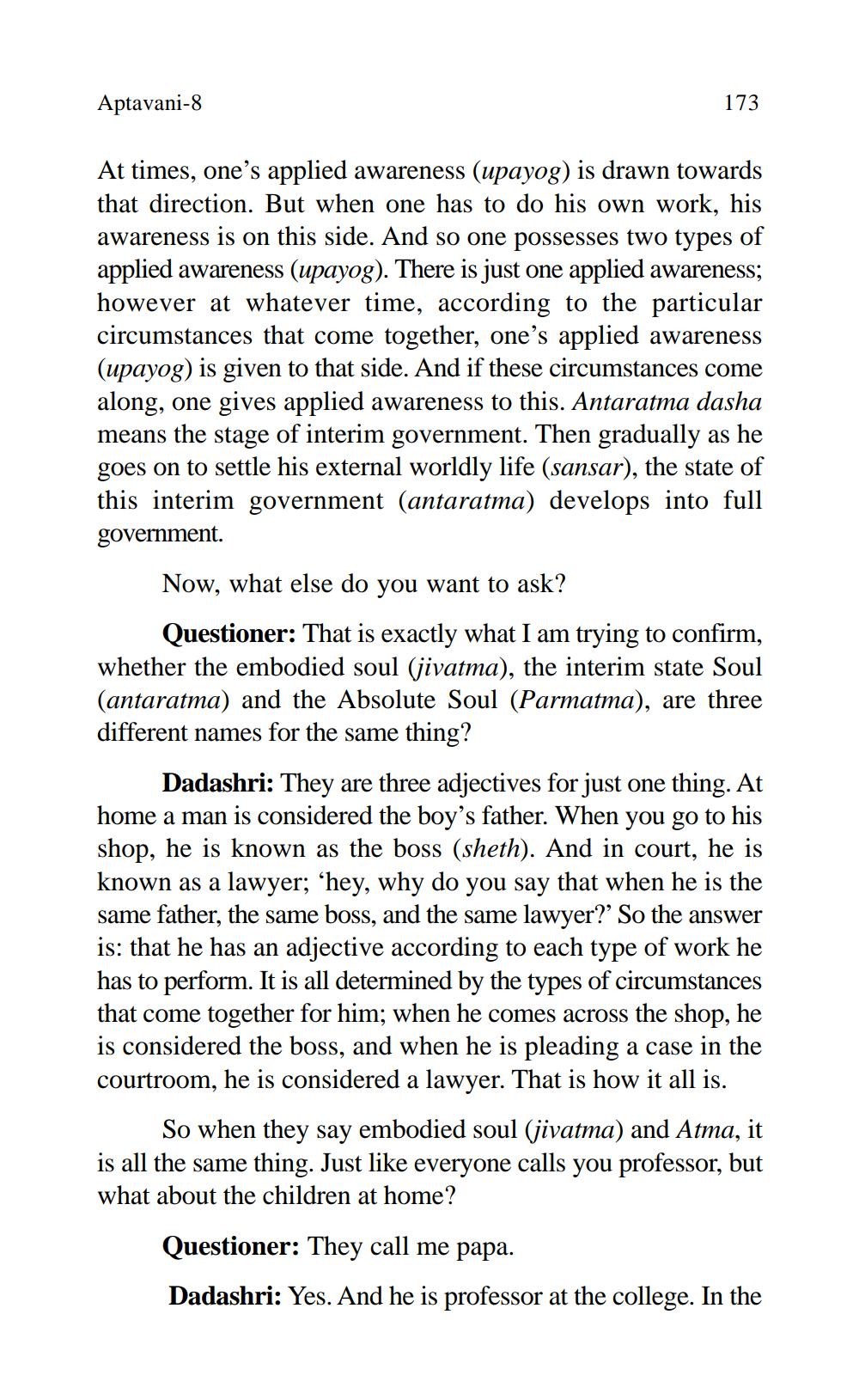________________
Aptavani-8
At times, one's applied awareness (upayog) is drawn towards that direction. But when one has to do his own work, his awareness is on this side. And so one possesses two types of applied awareness (upayog). There is just one applied awareness; however at whatever time, according to the particular circumstances that come together, one's applied awareness (upayog) is given to that side. And if these circumstances come along, one gives applied awareness to this. Antaratma dasha means the stage of interim government. Then gradually as he goes on to settle his external worldly life (sansar), the state of this interim government (antaratma) develops into full government.
173
Now, what else do you want to ask?
Questioner: That is exactly what I am trying to confirm, whether the embodied soul (jivatma), the interim state Soul (antaratma) and the Absolute Soul (Parmatma), are three different names for the same thing?
Dadashri: They are three adjectives for just one thing. At home a man is considered the boy's father. When you go to his shop, he is known as the boss (sheth). And in court, he is known as a lawyer; 'hey, why do you say that when he is the same father, the same boss, and the same lawyer?' So the answer is: that he has an adjective according to each type of work he has to perform. It is all determined by the types of circumstances that come together for him; when he comes across the shop, he is considered the boss, and when he is pleading a case in the courtroom, he is considered a lawyer. That is how it all is.
So when they say embodied soul (jivatma) and Atma, it is all the same thing. Just like everyone calls you professor, but what about the children at home?
Questioner: They call me papa.
Dadashri: Yes. And he is professor at the college. In the




